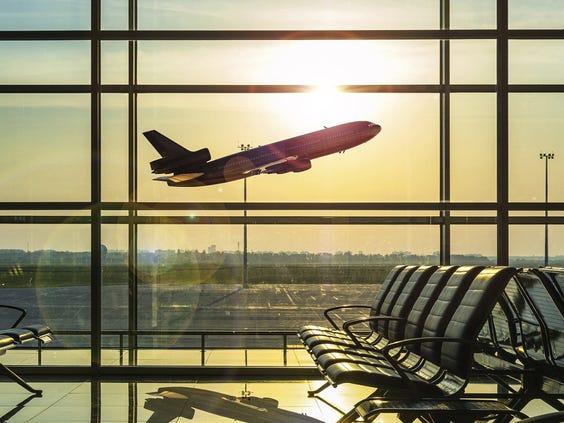
If you plan on taking a trip this year that requires flying, you may want to book your ticket sooner rather than later.
The cost of airfare is expected to rise significantly over the next several weeks.
Multiple factors are fueling the price increase, but the biggest impact is that more people are traveling these days, according to CNN.
Delta President Glen Hauenstein called the increase in demand "unparalleled."
"I have never, and I don't think our revenue management team has ever seen demand turn on so quickly as it has after the Omicron," Hauenstein said during a JPMorgan investor conference on Tuesday. "I think we're... feeling safe and turning fear into confidence, and confidence in the traveling public, confidence in reopening offices, confidence in taking masks off, and that is all leading to a surge in demand."
Doug Parker, Chairman and CEO of American Airlines, said demand is "higher than it has ever been."
"The revenues booked per day for airlines was actually higher one day last week for the total industry than it ever was in 2019," Parker said. "American, last week, we didn’t just have our record day. We had three days that were the best highest days ever."
Andrew Nocella, Executive Vice President of United Airlines, echoed those statements, calling the recent demand "unprecedented."
"People want to get back out, they want to connect, they want to see their friends, family and in fact they actually want to start travelling for the business," Nocella said. "Business traffic is booming."
Last month, travelers spent $6.6 billion on airline tickets on carriers’ websites, CNBC reported. It was the first time since the pandemic hit that both bookings and sales surpassed a similar pre-Covid month, according to the outlet.
Airlines say the uptick in travel demand couldn't come at a better time as jet fuel prices skyrocket. U.S. jet fuel prices are up 35% so far this year and surged to 2008 highs last week, propelled by Russia’s invasion of Ukraine, CNBC reported.
"We need to recapture somewhere between $15 and $20 each way on a ticket, on an average ticket value of about $200, so somewhere under 10%," Hauenstein said. "We are very, very confident of our ability to recapture over 100% of the fuel price run-up in the second quarter and through probably the end of the summer."
Hauenstein noted that Delta doesn't plan on adding fuel surcharges to domestic flights, but fees will be applied to international flights.
It's a little different at Southwest Airlines. The company has fuel hedges, long-term fuel contracts, that shield customers from spikes in fuel prices, CNN reported. However, the airline did institute a system-wide fare increase in February as demand returned following the Omicron variant.
"The fuel hedge gives us protection. And so that we can adjust more thoughtfully as we move forward," said Tammy Romo, Chief Financial Officer at Southwest. "When you think about pricing, that's more of a function of what will customers pay. And, fuel is just one of many of our costs, but it’s really just to provide us some cushion as we adjust to whatever market is."
The increase in travel demand isn't just people looking to get away for some leisure time, either. The post-pandemic world has led to a spike in corporate travel.
"People don't have to live in the cities that they work any longer," Hauenstein said. "There is a new type of travel and it's really business related because you have to get back to your office. You can live wherever you want."


